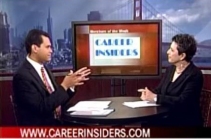
I don’t believe there is one right number. I think those who advise a set number of years, such as 10 or 15, do so because it is simpler to recommend a one-size-fits-all than to advise on an individual basis. There are many guidelines that are common to nearly all job seekers, but everyone has something that calls for special attention. In addition to these particulars, other variables include how much experience is deemed appropriate for a specific industry, company, function, or job level.
Unfortunately, age discrimination does exist, primarily against older workers, but often it is against younger employees. If it is age discrimination, which we all know is illegal, it is usually nearly impossible to prove. For older workers, I have found that in most cases, the issue is not tied to an age number. It may be the expectation that a more senior candidate will require a higher compensation than someone earlier in their career. Or, there is a concern that an older candidate may be approaching retirement, and so will only stay employed for a few years. However, the average job tenure among employees of all ages is less than five years (last recorded in 2012 by the US Department of Labor), and just over three years for those younger than forty.
I think the primary reason may be that the employer assumes that someone who is older has tired, stale ideas and ways of performing the job and has less energy and enthusiasm. These are factors that you can and should eliminate with your actual behavior, body language and voice during an interview, even when it is on the phone.
But, you must first get the interview which means that you do not want to give them any reason for discarding your resume on first glance.
For those who have been out of college at the undergraduate level for 12-20 years or more, I would omit graduation dates. In general, 12-18 years of experience is the time span I recommend, depending on the variables mentioned above (industry, company, function, job level) as well as how pertinent the particular experience is to the position you seek. My advice is to include only achievements that are relevant to your targeted role, even in your more recent experience.
 Hi my name is Mauri, and I am the President of Career Insiders, a career management and talent acquisition consulting firm. I speak frequently at conferences, job fairs, and career panels. I have been invited to speak at NCHRA’S Annual HR West Conference. I consult with career centers at universities including UC Berkeley’s Haas School of Business, Tulane University, Mills College, and others, and contribute regularly to publications such as TheLadders RecruitBlog. I am what some might consider a professional “people person.”
Hi my name is Mauri, and I am the President of Career Insiders, a career management and talent acquisition consulting firm. I speak frequently at conferences, job fairs, and career panels. I have been invited to speak at NCHRA’S Annual HR West Conference. I consult with career centers at universities including UC Berkeley’s Haas School of Business, Tulane University, Mills College, and others, and contribute regularly to publications such as TheLadders RecruitBlog. I am what some might consider a professional “people person.”



